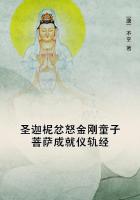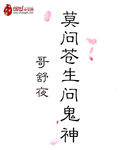And, meanwhile, what sort of a general state of society among the Anti-Puritan party does the play sketch? What but a background of profligacy and frivolity?
A proof, indeed, of the general downward tendencies of the age may be found in the writings of Ben Jonson himself. Howsoever pure and lofty the ideal which he laid down for himself (and no doubt honestly) in the Preface to 'Volpone,' he found it impossible to keep up to it. Nine years afterwards we find him, in his 'Bartholomew Fair,' catering to the low tastes of James the First in ribaldry at which, if one must needs laugh--as who that was not more than man could help doing over that scene between Rabbi Busy and the puppets?--shallow and untrue as the gist of the humour is, one feels the next moment as if one had been indulging in unholy mirth at the expense of some grand old Noah who has come to shame in his cups.
But lower still does Jonson fall in that Masque of the 'Gipsies Metamorphosed,' presented to the king in 1621, when Jonson was forty- seven; old enough, one would have thought, to know better. It is not merely the insincere and all but blasphemous adulation which is shocking,--that was but the fashion of the times: but the treating these gipsies and beggars, and their 'thieves' Latin' dialect, their filthiness and cunning, ignorance and recklessness, merely as themes for immoral and inhuman laughter. Jonson was by no means the only poet of that day to whom the hordes of profligate and heathen nomads which infested England were only a comical phase of humanity, instead of being, as they would be now, objects of national shame and sorrow, of pity and love, which would call out in the attempt to redeem them the talents and energies of good men. But Jonson certainly sins more in this respect than any of his contemporaries. He takes a low pleasure in parading his intimate acquaintance with these poor creatures' foul slang and barbaric laws; and is, we should say, the natural father of that lowest form of all literature, which has since amused the herd, though in a form greatly purified, in the form of 'Beggars' Operas,' 'Dick Turpins,' and 'Jack Sheppards.' Everything which is objectionable in such modern publications as these was exhibited, in far grosser forms, by one of the greatest poets who ever lived, for the amusement of a king of England; and yet the world still is at a loss to know why sober and God-fearing men detested both the poet and the king.
And that Masque is all the more saddening exhibition of the degradation of a great soul, because in it, here and there, occur passages of the old sweetness and grandeur; disjecta membra poetae such as these, which, even although addressed to James, are perfect:-
'3rd Gipsy.
Look how the winds upon the waves grow tame, Take up land sounds upon their purple wings, And, catching each from other, bear the same To every angle of their sacred springs.
So will we take his praise, and hurl his name About the globe, in thousand airy rings.'
Let us pass on. Why stay to look upon the fall of such a spirit?
There is one point, nevertheless, which we may as well speak of here, and shortly; for spoken of it must be as delicately as is possible.
The laugh raised at Zeal-for-the-land Busy's expense, in 'Bartholomew Fair,' turns on the Puritan dislike of seeing women's parts acted by boys. Jonson shirks the question by making poor Busy fall foul of puppets instead of live human beings: but the question is shirked nevertheless. What honest answer he could have given to the Puritans is hard to conceive. Prynne, in his 'Histriomastix,' may have pushed a little too far the argument drawn from the prohibition in the Mosaic law: yet one would fancy that the practice was forbidden by Moses' law, not arbitrarily, but because it was a bad practice, which did harm, as every antiquarian knows that it did; and that, therefore, Prynne was but reasonable in supposing that in his day a similar practice would produce a similar evil. Our firm conviction is that it did so, and that as to the matter of fact, Prynne was perfectly right; and that to make a boy a stage-player was pretty certainly to send him to the devil. Let any man of common sense imagine to himself the effect on a young boy's mind which would be produced by representing shamelessly before a public audience not merely the language, but the passions, of such women as occur in almost every play. We appeal to common sense--would any father allow his own children to personate, even in private, the basest of mankind? And yet we must beg pardon: for common sense, it is to be supposed, has decided against us, as long as parents allow their sons to act yearly at Westminster the stupid low art of Terence, while grave and reverend prelates and divines look on approving. The Westminster play has had no very purifying influence on the minds of the young gentlemen who personate heathen damsels; and we only ask, What must have been the effect of representing far fouler characters than Terence's on the minds of uneducated lads of the lower classes?















